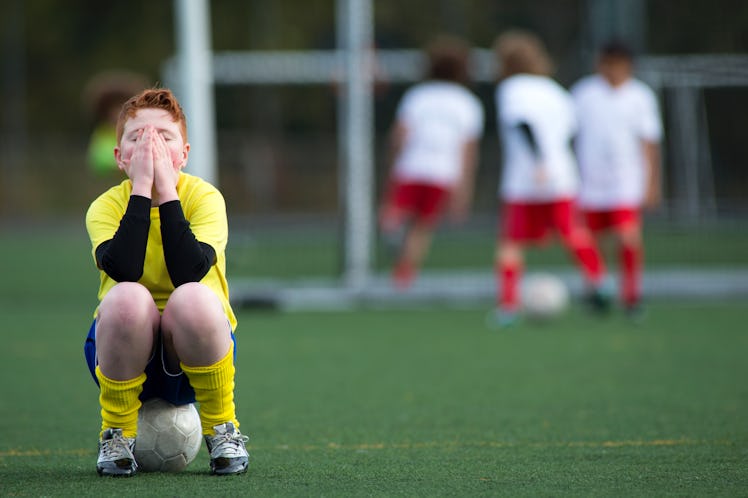Sports Are Seriously Stressful For Kids — That’s Kind Of The Point
New research pinpoints how youth athletes can better use stress to their advantage — and gain coping skills for life.

In an ideal world, youth sports would be equal parts fun and fitness. But many young athletes face pressure-related stress that can overwhelm them, making the game less fun and more of a chore, to the point of driving many of them out of sports altogether.
According to a poll from the National Alliance for Youth Sports, around 70% of kids in the U.S. quit playing organized sports by age 13, primarily because “it’s just not fun anymore.” Additional research has identified specific stress-related factors driving the rapid decline, including body image issues, social media, and coaching styles.
But stress doesn’t have to be a bad thing. Rather, it can actually be something kids use to their advantage and that increases their enjoyment in competitive athletics, according to new research from Staffordshire University in the UK.
The crux of the problem? “Individuals often equate stress with distress, which means that most people perceive stress to have a negative influence on their health, performance, and productivity,” Dr. Paul Mansell, lead researcher on the study and lecturer at Staffordshire University, explained in a press release.
However, Mansell and his team have found that athletes can maintain their mental health and improve performance by utilizing simple cognitive behavioral therapy techniques when they start to feel overwhelmed.
Investigating The Stress In Sports Connection
For the study, the research team encouraged teenage swimmers and soccer players, at a median age of 17.5 years old, at four different clubs to develop a ‘stress-is-enhancing’ mindset rather than a ‘stress-is-debilitating’ mindset through a series of workshops that focused on how stress responses could help them perform under pressure. The sessions focused on stress mindset, irrational beliefs, self-compassion, and imagery. They were conducted near the end of the athlete’s respective seasons, when the pressure to perform would be at its highest.
During the workshops, facilitators asked the student-athletes to imagine how they might feel immediately before a stressful event. They then encouraged the athletes to focus on controllable variables such as preparation, attitude, and effort instead of elements outside their control. The athletes were also encouraged to be more self-compassionate in difficult situations and were guided through mindfulness practices.
Upon completion of the project, the researchers noted that although the athletes experienced high levels of stress as their seasons came to a close, they experienced a significant reduction in fear, irritability, anger, and other negative emotions.
“It is not an event itself which causes us to think and respond in a particular way. Instead, it is our beliefs about an event that influence our thoughts, feelings and behavior,” Jason Wright, BA, MSc, a researcher on the project, said in the press release.
“When viewed positively, stress can help to fuel our performance,” Wright continued. “We have all experienced that feeling when the adrenaline kicks and your heart starts beating faster. We encouraged students to embrace this and to see it as their body and mind preparing to perform well.”
Flipping The Script On Stress
The study is important because it’s potentially actionable. Helping youth athletes better manage their stress and reduce negative emotions around competition could help their sports performance. And it could help them on, and off, the field (or rink, or pool, or whatever their arena is.)
That’s because one clear benefit of this is helping them reach 60 minutes or more of moderate-to-vigorous daily physical activity, as the Physical Activity Guidelines for Americans recommends. Youth sports have also been shown to promote social connections, improve academic performance, and teach important life skills like teamwork, communication, and how to learn from mistakes. But those benefits may be reduced if sports are overly stressful, and completely negated if stress pushes kids to quit participating completely.
“Despite the health benefits of taking part in sport, athletes are not immune to experiencing poor mental health or mental illness. Young athletes can become concerned about de-selection from elite programs and the need to perform well academically,” Mansell said. “Many stressful situations are unavoidable, so we wanted to help them change the way in which they think about these situations.”
These findings, the researchers noted, can also be applied beyond the field, to children’s school classrooms or in everyday life.
This article was originally published on